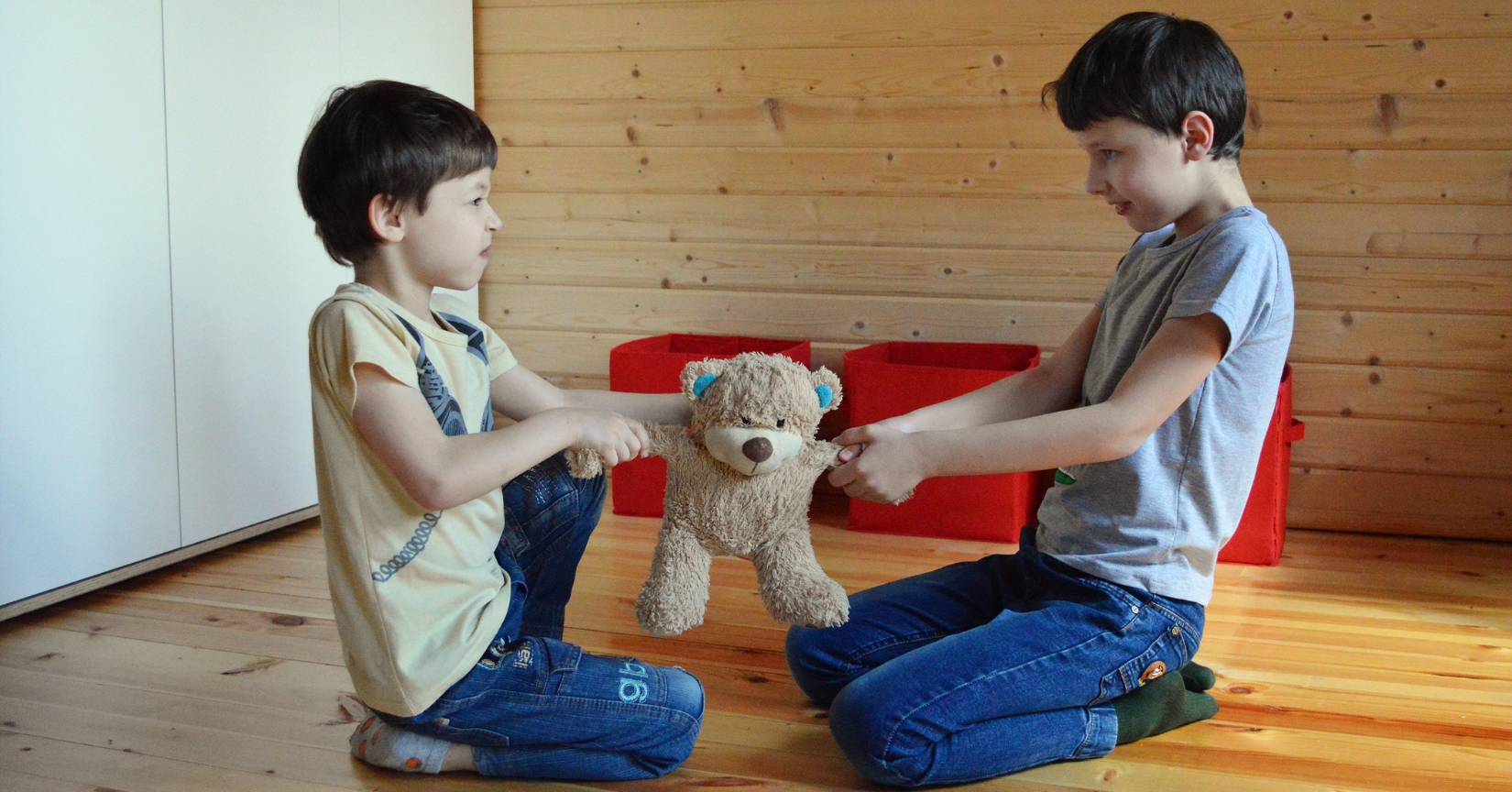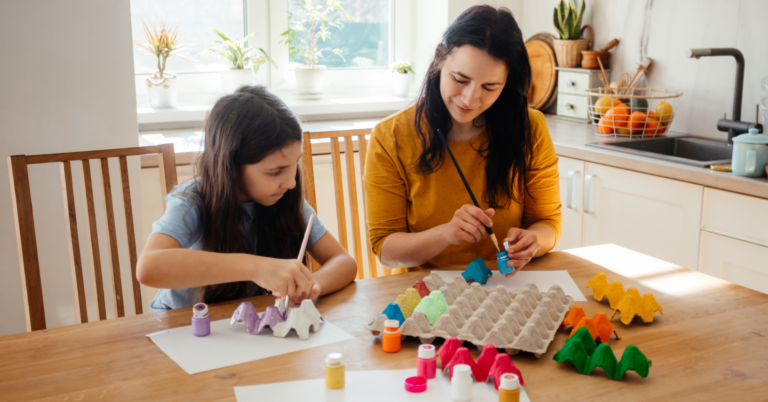When it comes to the sibling relationship, the dynamics can be as complex as a Shakespearean drama.
You might observe your children one moment sharing a heartfelt laugh and the next, locking horns over a trivial issue with an intensity that leaves you bewildered.
How do you step into this whirlwind of emotions without playing favorites, escalating tensions, or unintentionally hurting feelings?
After years of parenting, observing other families, and seeking expert advice, I’ve developed 7 strategies to help you mediate sibling conflicts without taking sides. Utilizing these techniques, you can transform your home into a more peaceful space where everyone feels heard and valued. It’s time to turn the tide on sibling rivalry and foster stronger, healthier bonds.
1. Understand the root cause
The first and perhaps most critical step in mediating sibling conflicts is understanding why they’re arguing in the first place.
Arguments between siblings can often seem irrational or insignificant to us as adults, but from their perspective, these issues carry a lot of weight. It might be a matter of perceived injustice, competition for attention, or simply differing personality traits clashing.
As a parent, it’s vital not to dismiss these conflicts as trivial but genuinely strive to understand the underlying cause. This will help you mediate more effectively and validate your children’s feelings and concerns. Your goal isn’t just to stop the argument but also to teach them how to navigate conflict in a healthy way. It’s all part of growing up – both for them and for you!
2. Resist the urge to intervene immediately
This might seem counterintuitive. As parents, our first instinct when we see our children in conflict is to step in and resolve it. But sometimes, intervention may not be the best first move.
When you jump in at the first sign of conflict, you might inadvertently rob your children of an opportunity to learn crucial conflict resolution skills. Furthermore, immediate intervention can sometimes create a dependency where your kids always expect you to be the arbitrator in their disputes.
Of course, this doesn’t mean you should let every argument escalate into a full-blown fight. The key is to observe from a distance and only step in if the situation becomes unmanageable or if they’re at risk of hurting each other physically or emotionally. It’s about striking a delicate balance between giving them space to resolve their issues and ensuring they’re safe and respectful towards each other.
3. Encourage empathy and perspective-taking
In the heat of a sibling conflict, it’s easy for kids to get so wrapped up in their own feelings and viewpoints that they fail to consider their sibling’s perspective.
As a mediator, you can play a role in helping them step out of their emotional tunnel and see the situation from a different angle. This could mean helping them understand that their sibling didn’t mean to hurt their feelings, or that what seems like an act of injustice is just an innocent mistake.
The idea is not to make them feel guilty or paint one as the ‘bad guy’, but to foster empathy and understanding. This helps diffuse the present conflict while also equips them with skills to handle future disagreements more compassionately. It’s a step towards growing more caring and understanding individuals – a win-win situation!
4. Establish clear rules of engagement
Did you know that professional sports wouldn’t exist without rules? Even a high-contact sport like rugby has clear guidelines about what’s acceptable and what’s not.
Similarly, in the arena of sibling relationships, having clear rules for conflict can help maintain a sense of fairness and prevent disputes from escalating.
These rules might include things like no name-calling, no physical violence, taking turns to speak, or any other guidelines that you think are crucial for your family. The goal isn’t to stifle their emotions but to provide a safe framework within which they can express their feelings and disagreements.
In this way, even amidst the inevitable conflicts of sibling relationships, you’re teaching your children valuable lessons about respect, self-control, and fair play.
5. Model conflict resolution
It’s a tough pill to swallow, but as parents, we don’t always get it right. We argue, lose our temper, and sometimes say things we don’t mean in the heat of the moment.
Related Stories from Careful Parents
Our children are always watching and learning from us, even when we wish they weren’t. They see how we handle conflict – with our partner, with them, or with others – and often mimic our behavior.
So if we want our kids to handle their conflicts in a healthy way, we have to start with ourselves. We need to demonstrate patience, empathy, and respect in our disagreements. We need to apologize when we’re wrong and make amends when necessary.
It’s not about being a perfect parent – that’s an impossible standard. It’s about being a real, human parent who makes mistakes but learns from them and tries to do better. And in the process, we’re teaching our children one of the most important life skills – how to resolve conflicts in a respectful and positive way.
6. Don’t aim for equal treatment
When mediating sibling conflicts, it might seem instinctive to treat both parties equally in an effort to be fair. However, this approach might not always be the most effective or beneficial.
Children are unique individuals with different personalities, needs, and sensitivities. A one-size-fits-all approach to conflict resolution might overlook these nuances and inadvertently create more tension.
Instead of striving for equal treatment, aim for individual fairness. This involves understanding each child’s viewpoint, acknowledging their feelings, and addressing their specific needs in the situation. This might mean different consequences or resolutions for each child depending on the circumstances.
Doing this sends a powerful message to your children – that you see them as individuals and value their unique perspectives and feelings. It fosters a sense of security and respect, which can go a long way in preventing future conflicts.
7. Encourage open communication
Communication is the bedrock of any relationship, and the sibling relationship is no exception.
When conflicts arise, it’s important to encourage your children to express their feelings and thoughts openly. This doesn’t mean allowing a free-for-all where everyone shouts their grievances. Rather, it’s about creating a safe space where each child feels heard and understood.
Encourage them to use “I” statements, like “I felt hurt when…” instead of accusatory “You” statements. This helps them take ownership of their feelings without blaming or attacking the other person.
Promoting open communication helps resolve the current conflict and sets a healthy pattern for future interactions. Over time, your children will learn to articulate their feelings and needs more effectively, leading to fewer misunderstandings and more peaceful resolutions.
Reflecting on the journey of mediation
As you navigate the winding road of sibling conflicts, it’s essential to take a step back and reflect. Mediating these conflicts is not just extinguishing fires as they arise. It’s a journey of growth, learning, and relationship-building that extends beyond the immediate issue at hand.
Conflict is not inherently bad. In fact, it’s a natural part of human relationships and a valuable opportunity for growth. Through these conflicts, your children are learning how to voice their needs, understand others’ perspectives, and negotiate solutions – skills that will serve them well throughout their lives.
As a parent, it can be heartbreaking to see your children in conflict. You might feel an urge to fix everything for them or wish they would just get along. But it’s important to resist these impulses and remember that your role is not to eliminate conflict but to guide your children through it in a healthy way.
It’s also crucial to keep in mind that every child and every sibling relationship is unique. What works for one family might not work for another. Be patient with yourself and your children as you figure out what works best for your family.
And finally, remember to celebrate the wins, no matter how small. Every time your kids resolve a conflict on their own, every time they empathize with each other, every time they communicate their feelings effectively – these are all wins worth celebrating. These are signs that they’re growing, learning, and becoming more adept at handling conflict.
In this journey of mediation, there will be challenges and setbacks, but also plenty of victories and moments of growth. Keep your eyes on the prize – a home where everyone feels heard, respected, and loved. And this journey is not just about resolving conflicts; it’s about nurturing lifelong relationships between your children.







